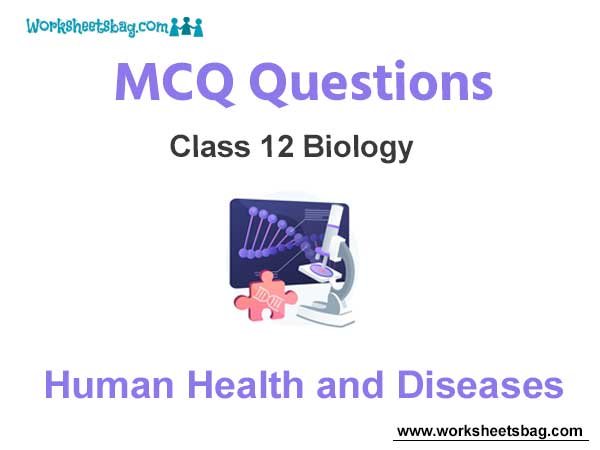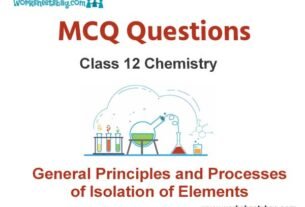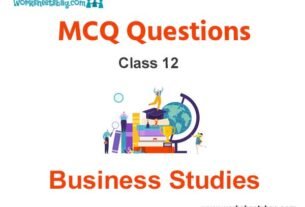Please refer to Human Health and Diseases MCQ Questions Class 12 Biology below. These MCQ questions for Class 12 Biology with answers have been designed as per the latest NCERT, CBSE books, and syllabus issued for the current academic year. These objective questions for Human Health and Diseases will help you to prepare for the exams and get more marks.
Human Health and Diseases MCQ Questions Class 12 Biology
Please see solved MCQ Questions for Human Health and Diseases in Class 12 Biology. All questions and answers have been prepared by expert faculty of standard 12 based on the latest examination guidelines.
MCQ Questions Class 12 Biology Human Health and Diseases
Question- Which of the following diagnostic tests are not used for cancer detection in internal organs?
(a) Computed tomography
(b) Magnetic resonance imaging
(c) Blood test
(d) Radiography
Answer
C
Question– Common approach for cancer treatment is
(a) Surgery
(b) Radiation therapy
(c) Immunotherapy
(d) All of these
Answer
D
Question– Where are opioid receptors present in the body?
(a) Lungs
(b) Central nervous system
(c) Gastrointestinal system
(d) Both (b) and (c)
Answer
D
Question– Morphine is obtained from which plant part
(a) Seed
(b) Root
(c) Leaves
(d) None of these
Answer
D
Question– Smack acts on body as a
(a) Immunomodulator
(b) Depressant
(c) Antidepressant
(d) Brochodilator
Answer
B
Question– Natural cannabinoid are obtained from which plant part
(a) Stem
(b) Root
(c) Inflorescence
(d) None of these
Answer
C
Question– Cannabinoids are taken by
(a) Inhalation
(b) Oral ingestion
(c) Massage on skin
(d) Both (a) and (b)
Answer
D
Question– Cocaine is basically a
(a) Protein
(b) Lipid
(c) Alkaloid
(d) None of these
Answer
C
Question– Which of the following plant have hallucinogenic property?
(a) Datura
(b) Atropa belladona
(c) Erythroxylum coca
(d) All of these
Answer
D
Question– Nicotine is a
(a) Protein
(b) Lipid
(c) Alkaloid
(d) None of these
Answer
C
Question– Addiction is which type of effect
(a) Physiological
(b) Psychological
(c) Pathological
(d) None of these
Answer
B
Question- Antigens are present
(a) inside the nucleus.
(b) on cell surface.
(c) inside the cytoplasm.
(d) on the nuclear membrane.
Answer
B
Question-The cytotoxic cells are produced by
(a) T-Cells
(b) B-Cells
(c) memory Cells
(d) mast Cells
Answer
A
Question- The exaggerated response of the immune system to certain antigens is called
(a) primary response
(b) secondary response
(c) immune suppression response
(d) allergy
Answer
D
Question- When body cannot differentiate between its own and foreign matter it is referred to as
(a) passive immunity
(b) active Immunity
(c) autoimmunity
(d) immunodeficiency
Answer
C
Question- Organ transplant rejection may be prevented by using
(a) antibodies
(b) new T cells
(c) immunosuppressive drug
(d) immunostimulatory drug
Answer
C
Question- Inflammatory response in allergy is caused by
(a) histamines
(b) antigen
(c) prothrombin
(c) antibodes
Answer
A
Question- The principle of vaccination is based upon which property of immune system ?
(a) Memory
(b) Diversity
(c) Specificity
(d) All of these
Answer
A
Question- The foetus gets immunized after receiving antibodies from mother through placenta. This type of immunization is called
(a) active immunity
(b) innate immunity
(c) passive immunity
(d) humoral immunity
Answer
C
Question- Which of the following vaccine has been produced from yeast by recombinant DNA technology ?
(a) Hepatitis A
(b) Hepatitis B
(c) Hib
(d) Oral polio
Answer
B
Question- Which of the following lymphoid organ provides the site for the interaction of lymphocytes with the antigen ?
(a) Bone marrow
(b) Thymus
(c) Spleen
(d) All of these
Answer
C
Question- Which of the following is an autoimmune disease ?
(a) Asthma
(b) Rheumatoid arthritis
(c) Cirrhosis
(d) AIDS
Answer
B
Question- Human immuno deficiency virus (HIV) has a protein coat and a genetic material which is
(a) Single stranded DNA.
(b) Single stranded RNA.
(c) Double stranded RNA.
(d) Double stranded DNA.
Answer
B
Question- Which is not immunity related disease ?
(a) AIDS
(b) Polio
(c) Cancer
(d) Small pox
Answer
C
Question- Messenger molecules, released by virus-infected cells, that bind to the surfaces of healthy cells and stimulate them to synthesize proteins that prevent viral reproduction are called
(a) interferons
(b) antibiotics
(c) cytotoxins
(d) lymphokines
Answer
A
Question- Blood vessels near a wound dilate and become more permeable in response to which material released from damaged cells?
(a) pyrogens
(b) antibodies
(c) histamine
(d) interferons
Answer
C
Question- Artificial immunity can be acquired from a
(a) serious illness
(b) vaccination
(c) repeated exposure to the same microbe
(d) treatment with penicillin
Answer
B
Question- Untreated victims of severe combined immunodeficiency usually die from
(a) infections that in other people are minor
(b) anaphylactic shock
(c) congested lungs
(d) unusually high fever
Answer
A
Question- Vaccination of malaria is not possible because
(a) they produce antibodies and antitoxins
(b) they do not produce antibodies and antitoxins
(c) antibodies resistant to vaccines are produced
(d) none of the above
Answer
B
Question- Most bacteria ingested with food are killed by
(a) cilia and mucus on the lining of the tract
(b) stomach acids
(c) the intrinsic factor in the stomach
(d) bile in the small intestine
Answer
B
Question- Which is an autoimmune disease?
(a) cancer
(b) asthma
(c) erythroblastosis foet s
(d) rheumatoid arthritis
Answer
D
Question- Which of the following blood groups enables a person to give blood to any person?
(a) A+
(b) B-
(c) AB+
(d) Cr
Answer
D
Question- An autoimmune disease is
(a) rheumatoid arthritis
(b) multiple sclerosis /
(c) insulin dependent diabetes
(d) all of these
Answer
D
Question- Lymphocytes that cause the formation of holes in plasma membranes are
(a) B cells
(b) killer (cytotoxic) T cells
(c) suppressor! cells
(d) helper! cells
Answer
B
Question- Which of the following is a pair of viral diseases?
(a) common cold, AIDS
(b) dysentery, common cold
(c) typhoid, tuberculosis
(d) ringworm, AIDS
Answer
A
Question- An example of innate immunity is
(a) PMNL – neutrophils
(b) T-lymphocytes
(c) B-lymphocytes
(d) TH cells
Answer
A
Question- Synthetic, drugs structurally related to adren ne are
(a) amphetamines
(b) barbiturates
(c) hallucinogens
(d) analgesics
Answer
D
Question- Continued exposure to vinylchloride (VC) may cause cancer to the
(a) vagina
(b) skin
(c) liver
(d) prostate gland
Answer
C
Question- Excessive consumption of alcohol mainly leads to
(a) state of hallucination
(b) loss of memory
(c) suppression of brain function
(d) cirrhosis of liver
Answer
D
Question- Antigen binding site in an antibody is found between
(a) two light chains
(b) two heavy chains
(c) one heavy and one light chain
(d) either between two light chains or between one heavy and one light chain depending upon the nature of antigen
Answer
C
Question- AIDS disease was first reported in
(a) Russia
(b) USA
(c) Germany
(d) France
Answer
B
Question- Which one of the following is the correct statement regarding the particular psychotropic drug specified?
(a) morphine leads to delusions and disturbed emotions
(b) barbiturates cause relaxation and temporary euphoria
(c) has his alters thought, feelings, perceptions and hallucinations
(d) opium stimulates nervous system and causes hallucinations
Answer
C
Question- Sporogony of malarial parasite occurs in
(a) stomach wall of mosquito
(b) s vary glands of mosquito
(c) RBCsofman
(d) liver of man
Answer
A
Question- Which of the following organs is not involved in the generation of immune response?
(a) brain
(b) lymph nodes
(c) spleen
(d) thymus
Answer
A
Question- Sedatives differ from tranquillizers in
(a) sedatives induce sleep while tranquillizers do not do so
(b) sedatives depress brain activity while tranquillizers activate brain functioning
(c) sedatives are strong tranquillizers
(d) sedatives cause addiction while tranquillizers do not produce such an effect
Answer
A
Question- Which cells of immune system causes pore formation at the surface of the plasma membrane?
(a) helper!cell
(b) killerT-cell
(c) suppressorT-cell
(d) B-cell
Answer
B
Question- If a person shows production of interferons in his body, the chances are that he has got an infection of
(a) typhoid
(b) influenza
(c) tetanus
(d) malaria
Answer
B
Question- The major histocompatibility complex is a
(a) series of complement-enhanced reactions to antigens ‘
(b) group of antigens, coded by a family of genes, on the surface of body cells
(c) form of autoimmunity
(d) the major cause of cancer
Answer
B
Question-In malaria, which of the following is released in blood to cause severe chill
(a) hematin
(b) haemozoin
(c) haemoof-bin
(d) haemolysin
Answer
B
Question- Heroin is also known by the name
(a) coke
(b) crack
(c) smack
(d) hemp
Answer
C
Question- Perspiration, s va and tears contains an enzyme, lysozyme, that kills
(a) virus-infected cells
(b) protozoa
(c) bacteria
(d) viruses
Answer
C
Question- The tobacco products cause
(a) aneurysm
(b) polyarteritis nodosa
(c) thromboangiitis obliterans
(d) Wernicke’syndrome
Answer
C
Question- Recognisation and digestion by phagocytosis due to coated surface of antibodies is
(a) opsonisation
(b) immunization
(c) T-cell immunization
(d) B-cell immunization
Answer
A
Question- Which one of the following statements is correct?
(a) benign tumours show the property of metastasis
(b) heroin accelerates body functions
(c) m gnant tumours may exhibit metastasis
(d) patients who have undergone surgery are given cannabinoids to relieve pain
Answer
D
Question- Which of the following combinations causes damage to gastric mucosa?
(a) alcohol & v um
(b) alcohol & barbiturate
(c) alcohol & aspirin
(d) alcohol & hashish
Answer
C
Question- An immune disease in which the body destroys the ill-functioning thyroid gland itself is
(a) Simmond’s disease
(b) myxoedema
(c) Hashimoto’s disease
(d) cretinism
Answer
C
Question- The major phagocytic cells are
(a) lymphocytes
(b) mast cells
(c) plasma cells
(d) macrophages
Answer
D
Question- The virus that causes acquired immune deficiency syndrome (AIDS) parasitizes reduces
(a) B cells
(b) cytotoxic T cells
(c) helper T cells
(d) AII
Answer
C
Question- Use of anti-histamines and steroids give a quick relief from
(a) nausea
(b) cough
(c) headache
(d) allergy
Answer
C
Question- An organism which has been used as a weapon in biological war causes which of the following disease?
(a) malaria
(b) common cold
(c) influenza
(d) anthrax
Answer
D
Question- Allergic condition caused by pollen grains of certain flowers causing inflammation of the nose is called
(a) laryngitis
(b) rhinitis
(c) pharyngitis
(d) bronchitis
Answer
B
Question- Triple antigen vaccine is not used for
(a) diptheria
(b) pertussis
(c) typhoid
(d) tetanus
Answer
C
Question- Hypotensive tranquillizer drug reserpine is obtained from roots of
(a) Ferule asafoetida
(b) Rawolfia serpentine
(c) Papaversomniferurn
(d) Curcuma longa
Answer
C
Question- An autoimmune disease is
(a) myasthenia gravis
(b) haemophilia
(c) AIDS
(d) none of these
Answer
A
Question- Which one of the following options gives the correct matching of a disease with its causative organism and mode of infection Desease Causative Organisms Mode of Infection
(a) Elephantiasis Wuchereria bancrofti With infected water and food
(b) Malaria Plasmodium vivax Bite of male Anopheles mosquito
(c) Typhoid Salmonella typhi With inspired air
(d) Pneumonia Streptococcus Pneumoniae Droplet infection
Answer
D
Question- Fatty liver syndrome is due to
(a) cigarette smoke
(b) alcoholic drinks
(c) opiate narcotics
(d) psychedelic drugs
Answer
B
Question- A’drunk person’has earliest effect on which part of the brain?
(a) cerebrum
(b) cerebellum
(c) pons
(d) medulla oblongata
Answer
A
Question- Charas or hashish is obtained from
(a) Leaves of Cannabis
(b) Resinous secretion of flowering tops of female Cannabis
(c) Dried leaves of female Cannabis
(d) Resinous secretion from bark of male plants of Cannabis
Answer
B
Question- Acertain patient is suspected to be suffering from Acquired Immuno Deficiency Syndrome. Which diagnostic technique will you reconfrmend for its detection?
(a) WIDAL
(b) ELISA
(c) MRI
(d) Ultra sound
Answer
B
Question- Amphetamines are central nervous-system stimulants. Barbiturates are
(a) CNS stimulants
(b) no effect on CMS
(c) hallucinogenic
(d) CMS, depressant
Answer
D
Question- Find the incorrect pair out
(a) Culex — malaria
(b) Xenopsylla — plague
(c) Aedes — yellow fever
(d) Phlebotomus — kala-azar
Answer
A
Question- Methadone is used for
(a) narcotic
(b) relieving chronic pain
(c) deaddiction of morphine and heroin
(d) all of the above
Answer
D
Question- Disease which occurs due to malfunctioning of organs is
(a) deficiency disease
(b) degenerative disease
(c) allergic disease
(d) hereditary disease
Answer
B
Question- Use of Cannabis products results in
(a) alteration in perception, thoughts and feelings
(b) depressed brain activity and feeling of calmness
(c) suppressed brain function and relief in pain
(d) stimulation of nervous system, increased alertness and activity.
(a) heroin
(b) alcohol
(c) librium
(d) morphine
Answer
D


